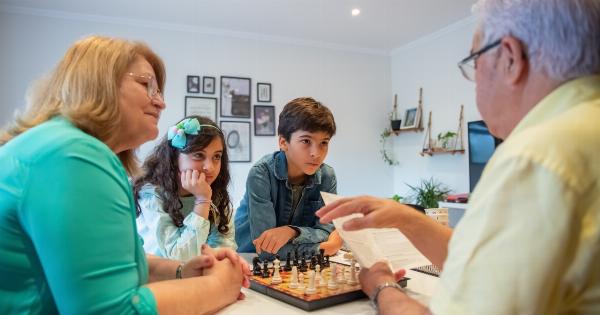Parenting is one of the most challenging responsibilities a person can face. It’s usually overwhelming and can be exhausting. However, with time, effort, and knowledge, you can master the art of dealing with children.
Kids can be difficult sometimes, but with proper guidance and patience, you can manage their moods and needs. This ultimate guide aims to equip you with the knowledge and techniques to be the best parent you can be.
Understanding Children
Children are unique creatures with specific needs that must be met to ensure their proper growth and development. The first step to dealing with them is to understand their nature and requirements.
1. Emotional needs
Understanding your child’s emotions is essential to foster healthy emotional development. Kids need to feel secure and loved to form strong relationships and develop social skills.
Emotional intelligence is equally important, and parents must help their child identify and express their feelings. Encourage your child to talk to you about their thoughts, opinions, and feelings.
2. Developmental needs
Each child has a unique developmental pace, and it’s crucial to recognize it. Parents need to be patient and understand that every child has their own timeline for milestones like talking, walking, and potty-training.
Stimulating environments and engaging activities can help children develop at their own pace.
3. Discipline and boundaries
Children thrive in an environment with rules and boundaries. Show your child the consequences of their actions and explain why certain behaviors are unacceptable.
Be firm but avoid using physical punishment as it leads to emotional scars and can be counterproductive in the long run. Instead, use positive reinforcement, like praising good behavior and providing incentives for meeting goals.
Effective Communication with Children
Clear communication is the key to successful parenting. Children require an engaging and an interactive style of communication to learn and understand things. Here are some tips to help you communicate effectively with your child:.
1. Listen to your child
One of the most important communication skills is listening. Encourage your child to voice their opinions and feelings, and give them your undivided attention when they speak.
Listening shows your child that their thoughts and feelings are valid and contribute to their emotional development.
2. Explain things in simple language
Children require simple and straightforward explanations to understand things. Tailor your language to your child’s age and comprehension and avoid using complex terminologies.
It’s also important to check if they have understood what you’re saying and ask questions to help them clarify it.
3. Be patient
Communicating with children can be frustrating, especially when they fail to make the connection. However, it’s essential to be patient and persistent in your explanations.
Give your child time to process and understand what you’re saying, and repeat if necessary.
4. Non-verbal communication
Non-verbal communication like body language, tone of voice, and facial expressions is equally important in communication. Children pick up on non-verbal cues and can interpret them accurately.
Be mindful of your body language and tone of voice when communicating with your child.
Positive Parenting Techniques
Positive parenting involves fostering healthy boundaries and building positive relationships with your child. Here are some effective techniques:.
1. Praise good behavior
Positive reinforcement is one of the most effective parenting techniques. It encourages good behavior and reduces negative behavior. Praise your child for their achievements, no matter how small, and use specific language to describe their behavior.
Instead of saying, “Good job,” say, “You did a great job sharing your toys with your friends.”.
2. Encourage independence
Encouraging independence in children helps develop their confidence and self-esteem. Let your child make choices and decisions, and provide them with opportunities to practice new skills.
However, ensure that they have age-appropriate independence and guidance to avoid accidents.
3. Spend quality time together
Spending quality time with your child helps foster strong relationships and promotes healthy development. Engage in activities that your child enjoys, like reading books, playing games, or going for a walk.
Your child will appreciate the time and attention you give them.
4. Be a good role model
Children learn by observation, and they emulate their role models, especially their parents. Model positive behavior and attitudes and avoid displaying negative behaviors like anger, aggression, and disrespect.
Be the best parent you can be, and your child will learn valuable life skills from you.





























